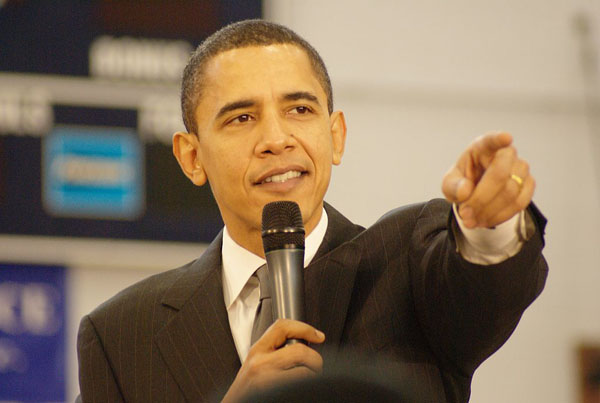What Does the Supreme Court Decision Mean for President Obama?
 Photo by Marc Nozell via Wikimedia Commons
Photo by Marc Nozell via Wikimedia Commons
Yesterday’s Supreme Court decision has been heralded as a major political victory for President Obama. The health care overhaul — considered by many as the signature legislation of Obama’s first term in office — is now poised to move forward, and Obama is now that much closer to achieving one of the foremost promises that he made to voters in 2008.
Had the Supreme Court found the law unconstitutional, it would have fueled the fire of Obama’s critics, who would have lost no time in deriding the first three-and-a-half years of his term as an utter waste.
So is it time to celebrate at the White House? Not so fast, according to Boston College political science professor Dennis Hale. Here are his three reasons why the Supreme Court ruling may actually complicate Obama’s run for the Oval Office:
1. Obama is stuck defending a rusty bucket.
“The Supreme Court ruling has removed the court as the issue. Now the health care law itself is the issue,” says Hale. “This isn’t necessarily good news for the President.”
If the law were ruled unconstitutional, Obama would have been free to mount a campaign against the Supreme Court. But now he must run on his health care plan, which has serious holes in it, Hale explains.
“There are some very plausible complaints against the health care plan. Critics argue that it’s a job killer, that it gives more powers to bureaucrats than it does to doctors and patients, and that it’s a likely ‘bankrupter’ to the states.”
2. “Tax” is a four-letter word during election season.
“The Obama campaign wants to say, ‘the Supreme Court found the individual mandate constitutional, therefore we were right all along,’” says Hale. “But Obama always insisted that the individual mandate was not a tax. Now the penalty is a tax.”
And that’s never a popular word in the months leading up to an election.
“We almost certainly can expect the Republicans to run ads with loops of Obama press conferences saying that this isn’t a tax. And then they’ll point out that it is.”
3. Americans are wary of big government.
“The reality is that Americans have experienced big government a lot more in the past 40 to 50 years. And their dealings with the government have not left them with a wholly savory attitude toward bureaucrats, like the people at the IRS or the post office,” says Hale.
“Now Obama has to tell people, your healthcare system is going to be run by the same people running the post office. It’s going to be inefficient, and it’s going to be slow. It’s not going to be like FedEx — a private company — where there’s almost never a line.”

